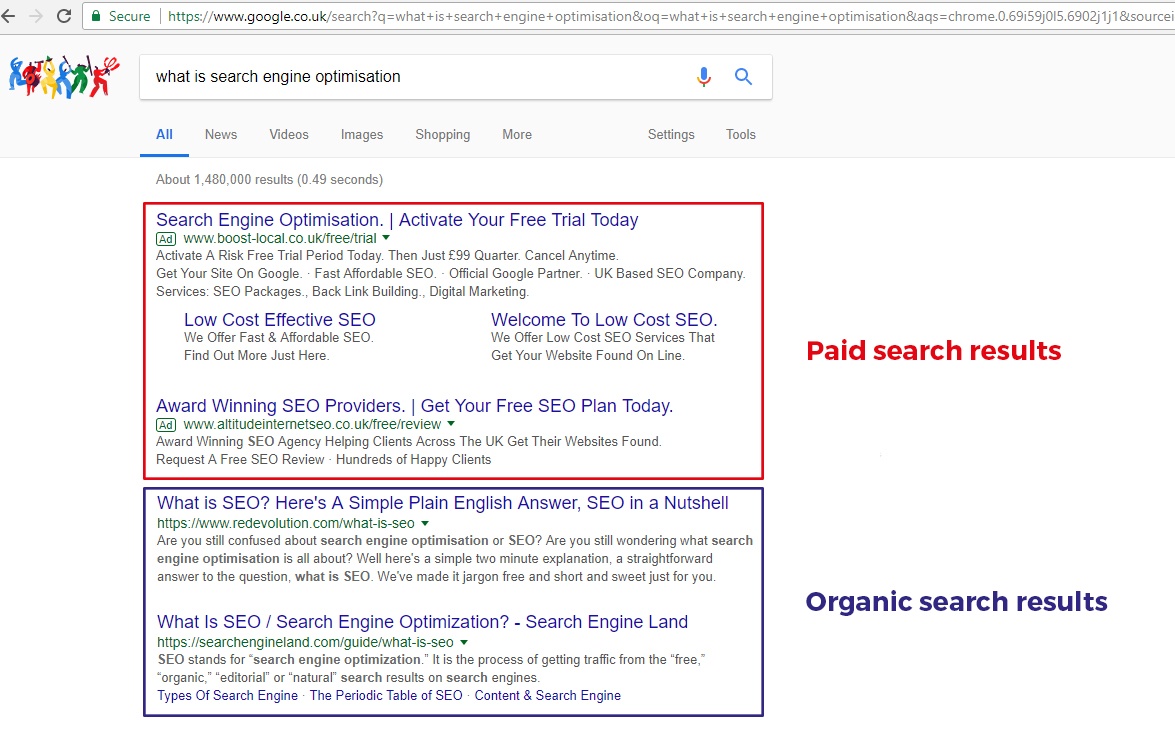It’s a term that’s used daily in the marketing world, yet it is misused and misunderstood by many. For companies with a website or online store, search engine optimisation (SEO) is pinnacle to a successful marketing strategy to facilitate business growth. SEO ensures your website is easily found by both search engines and humans, ensuring a positive user experience for your audience.
In a highly competitive online environment, optimising for search engines is more important than ever. Do you understand the potential it holds for your business? We’ve gone back to basics to explain the fundamentals of SEO and why it will enhance your online presence. Watch the video below and scroll below to learn more about SEO for beginners.
What is SEO?
SEO is a marketing practice that focuses on of increasing the quantity and quality of website traffic through organic search engines, like Google. Made up of multiple aspects, SEO includes page copy, how other websites link to you and simply making sure your site is well structured for search engines.
While it’s important for search engines to easily crawl your web pages, SEO aims to improve your website for humans too. Essentially, it comes down to better understanding how your target audience behave online and what they’re searching for. What language are they using? What keywords are they typing into Google? What type of content do they want to find? Through in-depth research you will identify your ideal customers thought process and online behaviour, allowing you to optimise for search engines.
What are organic search results?
Organic search results appear on results pages due to their relevance to a specific search term. Ranking high organically is what SEO is all about. In contrast, with advertising, websites are paying for their page to appear for certain keywords. Organic and paid results are differentiated by an “ad” symbol next to the page URL. Paid results appear on the top 4 results of the search page. (screenshot of google search page with ads)

Why is SEO important?
Although social media and paid advertising are effective in driving traffic, search engines remain the predominant source in generating website visits. Organic search results in particular, appear more credible to savvy internet users and receive more click-throughs than ads. SEO is important regardless of what your website offers; content, products, services or general information. People use Google to seek answers to their queries and if search engines can’t find your site, you’ll miss the opportunity to get in front of eager prospects. When SEO is done correctly and your content ranks for related keywords, you’ll see success continue over time, unlike advertising, which requires continuous investment.
IS SEO necessary?
Yes. Although search engines are incredibly smart, they still need assistance finding and ranking your site. While giants like Google are continuously improving their website crawling technology, they’re still restricted to what they can read. When optimised correctly, your website will rank well, however a single mistake can drastically affect your online visibility and push your site further down the search results.
Can I do SEO myself?
To do SEO well is difficult. Most people will understand the basic concepts and be able to implement them sufficiently. There’s some great free education services and resources online to help guide you through it too. However, the success of your SEO depends on dedication, time, knowledge and your website structure. Those companies with a more complex website and higher revenue will require specialist help from an expert.
Investing in SEO acts like a prospect magnet for your business, ensuring your website ranks high for the keywords your target market are searching for online. Do you currently practice SEO on your website? How has it impacted your search engine ranking? Drop us a comment below, we’d love to hear from you!
